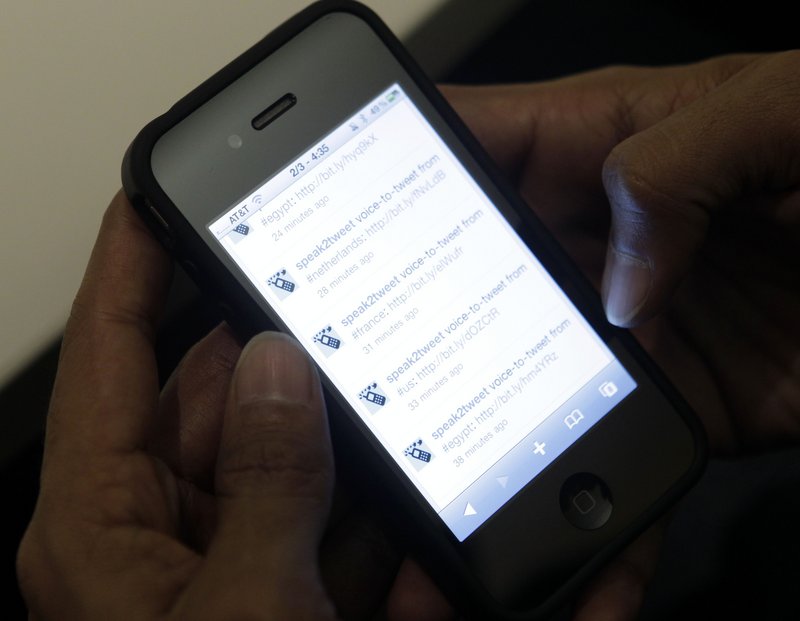SAN FRANCISCO – Even before his first day on the job at Google, Ujjwal Singh was trying to figure out how to use his passion for the spoken word and the company’s technological prowess to help Egyptians bypass government efforts to muzzle the massive protests there.
Singh, 38, helped start an online service that lets fans share voice messages with the likes of Miley Cyrus and the Jonas Brothers. Google bought the startup Jan. 25, and a Google product team leader trying to figure out a way around Egypt’s recent Internet blackout asked Singh for help before he reported to work.
A weekend of brainstorming and programming later, Speak2Tweet was born — a service that lets people call a phone number and leave a message, then posts a link to the message to Twitter.
It allowed Egyptians to communicate even as the regime of President Hosni Mubarak cut Internet and cell phone services for days, trying to squelch furious protests in Cairo demanding an end to his three decades of authoritarian rule.
By the time Singh started his job Monday, his service was already part of the uprising.
“He designed, built and launched his first product before he started at Google, which is now our all-time record,” says Steve Crossan, a Google product manager.
Almost 2,900 spoken tweets had been posted as of Friday afternoon on the Twitter account @speak2tweet. Some of the heaviest volume came after access to both Twitter and the Internet was restored in Egypt earlier this week. The alternative method of tweeting has turned into a forum for longer-form expression because the voice recordings aren’t confined to Twitter’s 140-character limit.
Another Twitter account, @AliveInEgypt, has been set up to transcribe the messages, which are mostly in Arabic, into text. An Internet radio station also is playing the voice recordings at http://egypt.periszkopradio.hu.
The service has been used to express outrage, indignation, fear, exhilaration and pleas for help in the fight to oust Mubarak. “This corrupt regime must be eliminated,” said one of the translated tweets on AliveInEgypt. Another said: “For all our Arab brothers, for all the men in Tahrir Square. Please help us, stand with us; if you abandon us we will die.”
There is no way to verify that every tweet came from the site of the protests, or even from Egypt. When the service can trace the country code of the call, it adds a note, or hashtag, specifying the location.
The service’s use was limited by the very problem that created it: Without Internet access, most Egyptians didn’t know Speak2Tweet existed, says Jillian York of the Berkman Center for Internet & Society in Harvard University.
Even so, it provided a vital link between Egypt and the rest of the world, says Cynthia Wong, director of the Center for Democracy & Technology’s Project on Global Internet Freedom.
Send questions/comments to the editors.



Success. Please wait for the page to reload. If the page does not reload within 5 seconds, please refresh the page.
Enter your email and password to access comments.
Hi, to comment on stories you must . This profile is in addition to your subscription and website login.
Already have a commenting profile? .
Invalid username/password.
Please check your email to confirm and complete your registration.
Only subscribers are eligible to post comments. Please subscribe or login first for digital access. Here’s why.
Use the form below to reset your password. When you've submitted your account email, we will send an email with a reset code.